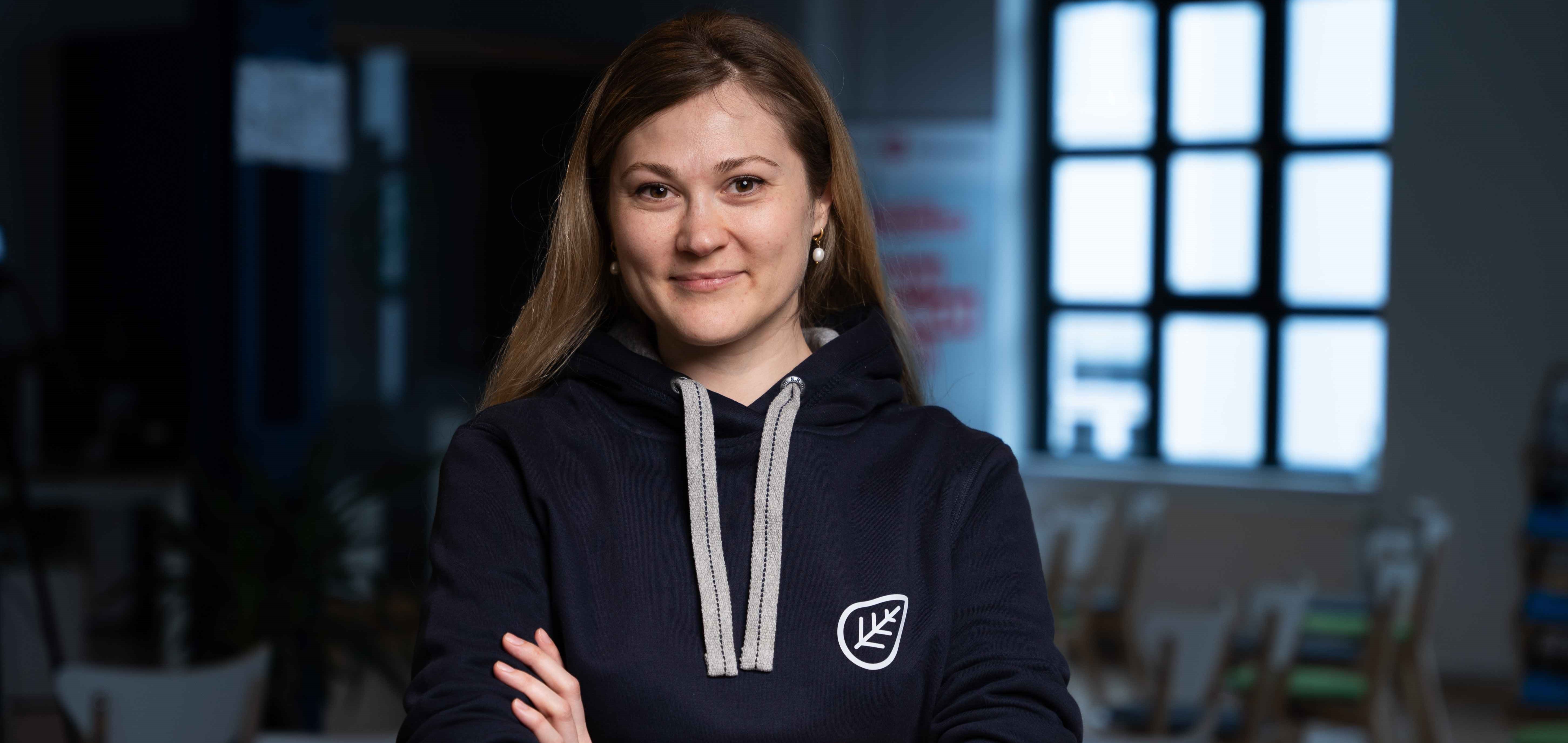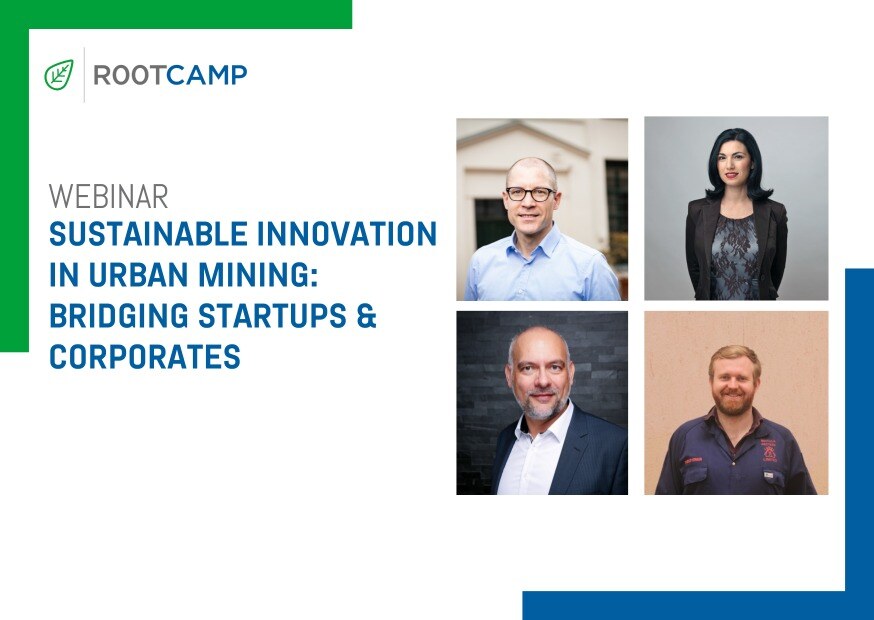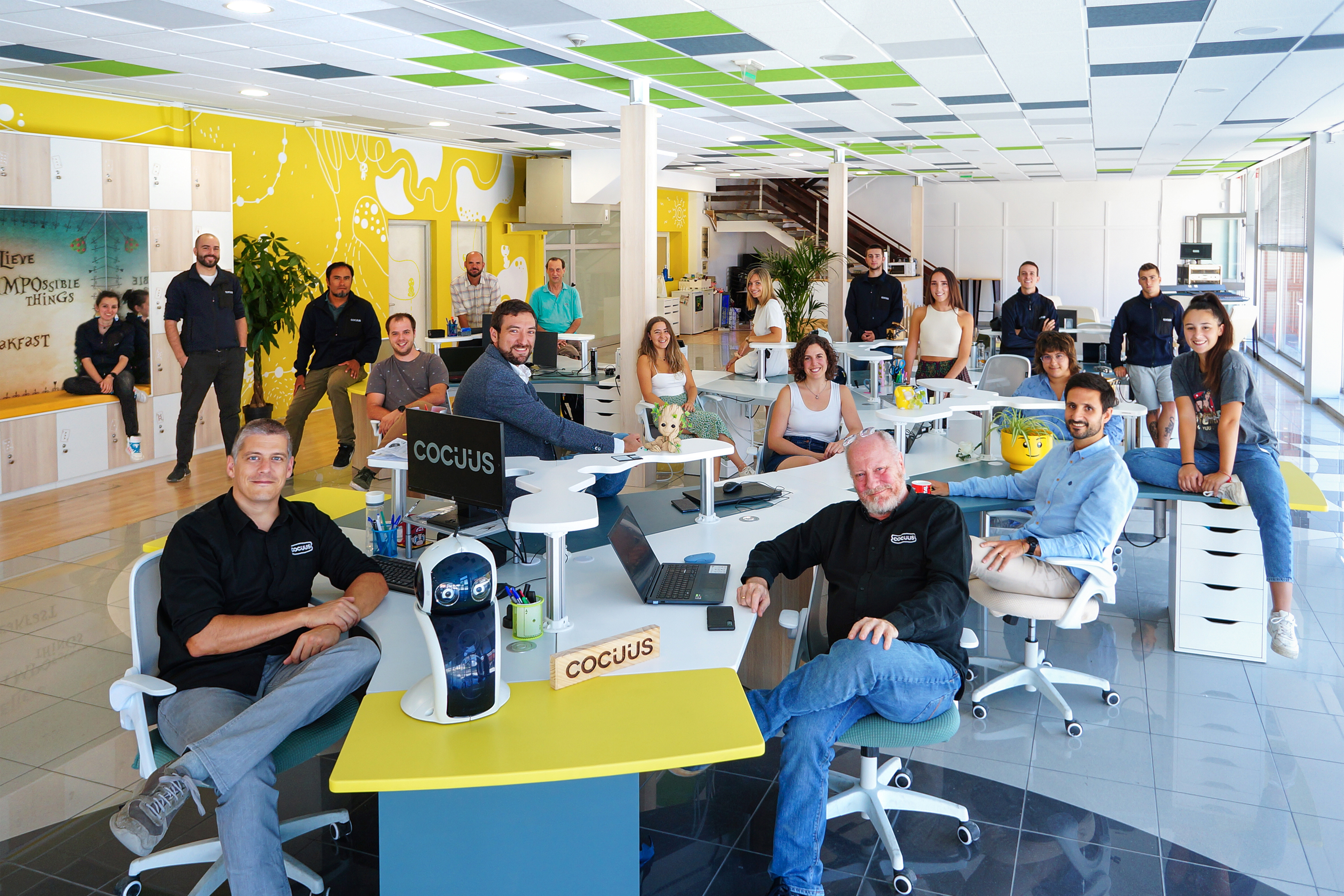The Desafía FoodTech Germany program is an initiative facilitated by ICEX Spain and RootCamp, spanning six months from April to October 2024. On June 24th we will host our Virtual Mentors day, and in the meantime we want to tell more about participants of this program. Libre Foods transforms the food system to be more sustainable for the future by creating innovative products made from fungi. Using fungi fermentation technology, they are developing a range of fungi-based ingredients that satisfy consumers' needs for taste, nutrition, and affordability.

Are there any perceptions or stereotypes among your target audience you face? What are these challenges?
One of the main challenges we face is that people generally do not know enough about fungi. Despite their incredible potential, there is still a lack of awareness and understanding about the benefits and applications of fungi. This is particularly evident in the food sector, where many companies are now working with fungi to create innovative and sustainable products. Educating our target audience about the versatility and advantages of fungi is crucial to overcoming these stereotypes and misconceptions.
Could you elaborate on the specific fermentation technology utilized by Libre Food to harness the potential of fungi organisms in food production?
At Libre Foods, we aim to revolutionize the food system by creating mushroom-based meat alternatives. Our innovative fermentation process leverages the unique properties of fungi to produce products that mimic the taste and texture of animal meat. We utilize the entire fungal organism, from its fruiting body to its roots, known as mycelium. Our flagship product, LIBRE Bacon®, is the first mushroom-based bacon in the European Union and is made using a traditional process scalable to any food production facility. We have progressed from lab-scale to pilot and industrial testing phases and are currently commercializing in Europe, working on industrial optimization to increase production volume in response to growing demand.
Our second line of research focuses on a new fermentation system for producing food with filamentous fungal biomass. While the industrial fermentation of these microorganisms has been developed primarily for metabolite production, current processes prioritize these metabolites over mycelium. Therefore, we have developed a fermentation system emphasizing the mycelium of filamentous fungi, yielding a protein-rich, micronutrient-dense, light-colored, and neutral-flavored biomass. This fungal biomass serves as the main ingredient in various potential food applications. Our product development team has already created a lab-scale prototype of Libre Chicken, a chicken breast analogue with over 80% mycelium content. We are awaiting successful upscaling of mycelium production to proceed with scaling up the chicken product.
To achieve price parity with animal-based food products, strain and bioprocess optimization are crucial. At LIBRE, we are harnessing AI and robotics to build a high-throughput screening platform for the discovery and optimization of mushroom-based food applications, considering various strains and intriguing ingredients for the food industry.
What is mycelium and what is special about the ingredient? What are environmental and economic benefits?
Mycelium is the vegetative part of a fungus, consisting of a network of fine white filaments known as hyphae. It plays a crucial role in decomposing organic material, making it a fundamental component of the ecosystem. In recent years, mycelium has gained significant attention in the food industry for its unique properties and potential benefits.
Mycelium offers several environmental benefits.
First, its sustainable cultivation uses agricultural waste products, reducing the need for arable land and minimizing waste, which leads to a lower environmental footprint compared to traditional agriculture. Second, growing mycelium requires less water and energy than conventional livestock farming, making it an eco-friendly alternative, especially in areas with water scarcity and high energy costs. Additionally, mycelium production generates minimal greenhouse gas emissions compared to livestock farming, helping to mitigate climate change and lower the food industry's carbon footprint. Finally, mycelium-based products are biodegradable, which reduces environmental waste and supports a circular economy.
This part of fungi also offers the following economic benefits.
First, its use of agricultural by-products for cultivation reduces raw material costs. Additionally, mycelium grows quickly and can be harvested in a short time, making it a cost-effective option for large-scale production. Second, mycelium's versatility allows it to be used in a variety of products, from meat substitutes to packaging materials, opening multiple revenue streams for businesses and reducing reliance on single-product lines. Finally, as consumers become more environmentally conscious, the demand for sustainable and eco-friendly products is increasing. Mycelium-based foods meet this demand, giving businesses a competitive edge in the market.
In conclusion, mycelium is a game-changing ingredient in the food industry, offering substantial environmental and economic benefits. Its sustainable cultivation, low resource consumption, and versatile applications make it a valuable asset for businesses looking to innovate and contribute to a greener future.
Why does your startup focus on fungi? What is the current situation regarding mycelium approval in Europe?
Our startup focuses on fungi for several compelling reasons:
Rapid growth: fungi exhibit incredibly fast growth rates, allowing for quicker biomass and protein production compared to traditional agricultural crops. This rapid growth is crucial for meeting the increasing demand for sustainable food sources.
Year-round production:Unlike many crops that are dependent on seasonal changes, fungi can be cultivated indoors under controlled conditions. This means we can produce mushrooms all year round, independent of external environmental factors, ensuring a consistent supply.
High yield: fungi are incredibly efficient in terms of biomass and protein yield per unit of substrate or media. This high efficiency is essential for optimizing resource use and ensuring scalability, making it a highly sustainable option.
Best-positioned alternative: consumers are seeking alternatives that match the texture, taste, and nutritional profile of animal proteins. Fungi are uniquely positioned to meet this demand with their filamentous fibers, umami flavor, and high nutritional value, making them an ideal substitute.
Sustainable: fungi can thrive on a variety of substrates, including agricultural and industrial waste products. This ability not only contributes to the circular economy but also promotes sustainability by reducing waste and utilizing resources that would otherwise be discarded.
Life-long Ingredient: while fungi have been a staple ingredient for both industry professionals and consumers, their full potential has yet to be fully realized. Our focus is on unlocking and harnessing this potential, expanding the applications of fungi in innovative and impactful ways.
We do have a favorite fungus: Aspergillus. This is particularly advantageous for us because it's the fungus we're currently working with. Its mycelium is approved for consumption and is widely used globally. Aspergillus is the fungus used in the preparation of fermented foods made from soybeans, beans, rice, potatoes, and cereals. In our bioprocess, Aspergillus demonstrates the best productivity performance. Additionally, its fermentation results in a product with a neutral taste, color, and odor, making it easy to handle and use as an ingredient.

How does Libre Food address challenges such as substrate selection, fermentation conditions, and downstream processing to maximize the yield and efficiency of its fungi-based food production while minimizing environmental impact?
Libre Food addresses challenges like substrate selection, fermentation conditions, and downstream processing by employing multi-scale screening methods to identify the most efficient substrates and fermentation parameters for fungal growth. Our deep understanding of fermentation profiles and precise control of process parameters ensures maximum mycelium yield with optimal nutritional and textural properties. This approach not only optimizes resource use but also reduces the need for extensive downstream processing, thereby minimizing environmental impact.
What are your plans for the future and why did you apply for the Desafia FoodTech Germany Program?
In the coming years, we aim to establish ourselves as leaders in the European mycelium market by forming collaborations with companies for the development, production, and commercialization of various mycelium-based products. Our R&D and engineering teams will continue advancing our high-throughput screening platform, achieving significant results that will drive our growth. This platform will not only accelerate the experimental phase in bioprocess optimization but also provide us with multiple potential applications for mycelium. We will constantly discover the characteristics of different strains and their suitability for specific applications, allowing us to create distinctive products with, for example, specific fatty acid profiles by simply modifying bioprocess variables.
In the long term, we will focus on developing these specialized applications, expanding our market to other continents, and continuing our research to find new strains with potential for the food industry. We will also work on the development and scaling of already discovered applications. We applied to the Desafia FoodTech Germany Program because we aim to refine our commercial strategy, especially for the German market, and to seek potential B2B companies and clients interested in purchasing our mycelium as an ingredient.
Last but not least
If you have extensive knowledge and connections in the German food industry and can help guide promising Spanish startups entering the German market, we invite you to share your expertise. Sign up to be a mentor and join our Virtual Mentors Day on June 24th. On September 11th, we are hosting a special Demo Day, called “Taste of Tomorrow”. Find the agenda and register here.
/rootcamp_logo_white_2022.png?width=2123&height=630&name=rootcamp_logo_white_2022.png)

/RC%20logo%202022.png?width=2325&height=703&name=RC%20logo%202022.png)




